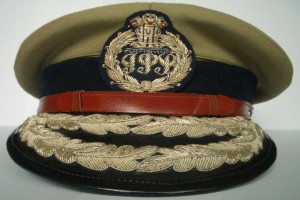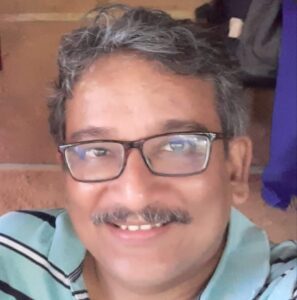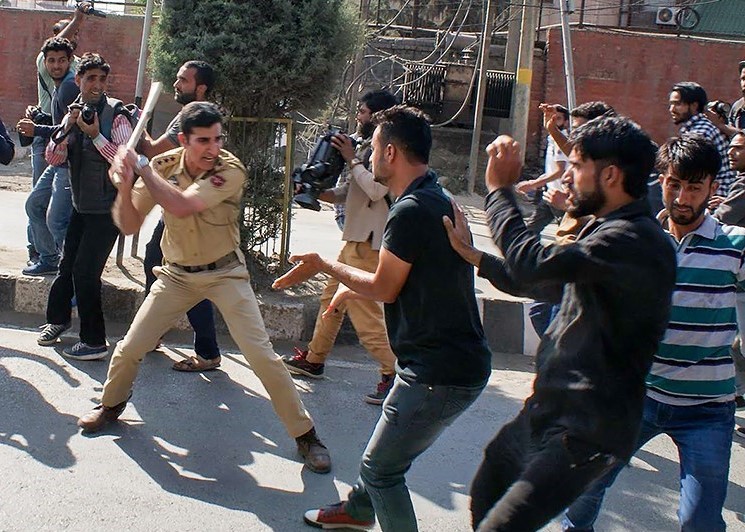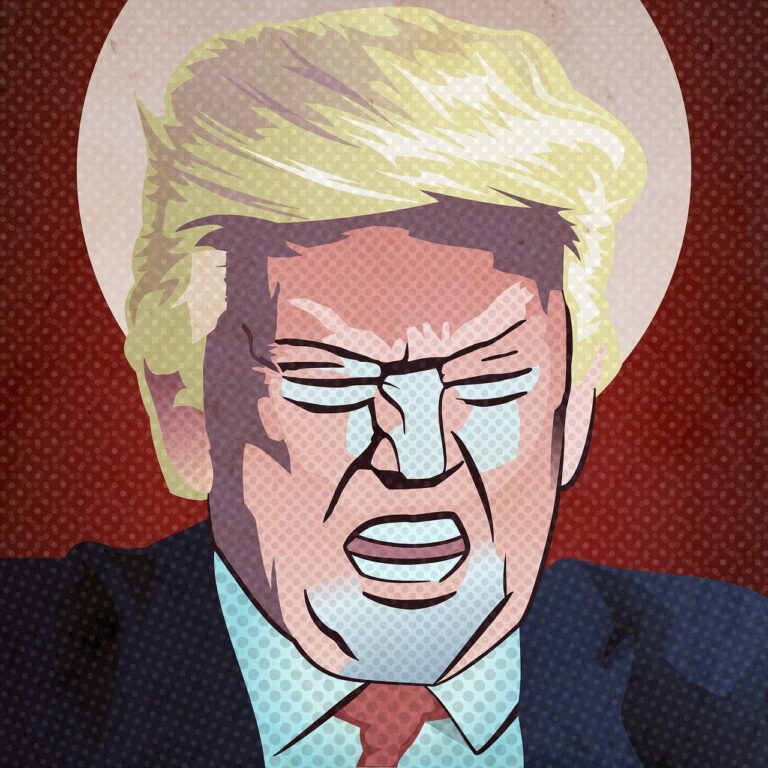
Perspective
 By Anil Singh*
By Anil Singh*
The police force we deserve
Mumbai: Aiming to improve the image of the Maharashtra police, state Home Minister Anil Deshmukh recently consulted former state police chiefs, some of whom had petitioned the high court about the vituperative campaign against the Mumbai police by certain news TV channels in the Sushant Singh Rajput case.
However, nothing was heard about the one point that is central to improving the image of the men in khaki — police reforms — which seek to insulate police officers from political interference on the one hand and on the other hand seek to make the force accountable to the public.
Deshmukh’s image initiative comes after Maharashtra’s Director-General of Police Subodh Kumar Jaiswal, who enjoys a clean image, quit midway through his term to head the Central Industrial Security Force (CISF). This certainly is bad optics for Deshmukh and his government. To make it worse, the stated replacement for Jaiswal is Hemant Nagrale, an officer who has not done anything noteworthy and is widely perceived to be a yes man by his detractors.
Several other officers have better credentials. One of them is being considered to be unfairly sidelined; Sanjay Pandey, currently DGP (Home guards). This is the man who ensured that Dharavi did not burn like the rest of the city during the post-Babri riots of 1993, the man who wasn’t afraid to arrest bigwigs in the shoe scam that he busted, the man whose transfer was announced at a press conference by the then CM Sharad Pawar, who then reversed it heeding public pressure.
How can anyone improve the image of the state police if an upright DGP is forced out and replaced with a apparently pliable one? And how can anyone think of improving the police force without implementing police reforms?

Designed to serve its colonial masters, the Indian police is inherently repressive; one that is answerable to the ruling party rather than to citizens. The entire nation witnessed the barbaric manner in which the cops initially enforced the Corona lockdown.
Every officer of the Indian Police Service (IPS) swears by the Constitution of India but the common man is hesitant to visit a police station. Nandkumar Saravade, who left the IPS for a career in information technology, has publicly said that seven out of ten cases are simply not registered. One of the state’s best-remembered DGPs, the late Arvind Inamdar, had said he was afraid to visit a police station after retirement lest he be humiliated by a hawaldar.
Heaven help those civilians who offend a policeman. In Tamil Nadu, mobile shop owner P Jayraj and his son paid with their lives for this. Their crime was to question the authority of the local police to shut shops during lockdown.
Going by police figures, which are notoriously underreported, an average of five persons die every day in police custody across the country. In Maharashtra, 106 persons died in police lock-ups between 2013 and 2017, says the National Crime Records Bureau (NCRB). No policeman has yet been convicted for it.
Closer home in Mumbai, the four Juhu constables booked for beating a 22-year-old to death for loitering during lockdown have been granted bail.
Some defend the cops saying that their service conditions are brutalizing but there is no excuse for the way they are abusing the sedition law — which the British used against Tilak and Gandhi — to curb political dissent.
Look at the number of political activists, academics and journalists arrested under the draconian anti-terrorist law, the Unlawful Activities Prevention Act (UAPA) – including the 84-year-old Jesuit priest Stan Swamy — while gangsters such as Vikas Dubey were allowed to go free even after shooting dead a minister in a police station.
The Delhi police blindly sent notices under the UAPA to a bunch of school students who had flooded environment minister Prakash Javadekar’s inbox, protesting against a proposed change in the environment laws.
The Delhi police even tried to ensnare IAS officer-turned-activist Harsh Mander and Prof Apoorvanand under the UAPA when the duo criticised their handling of the Delhi riots last year.
Maharashtra too is headed in that direction. The Srikrishna Commission report on the post-Babri riots in Mumbai noted that “police officers and men…appeared to have an in-built bias against Muslims…seen in the active connivance of police with rioting Hindu mobs”.
That the bias still exists was evident in the arrests of two college-going girls from Palghar in 2012 for promoting enmity between two communities. One of them had posted a comment on Facebook criticizing the bandh for Bal Thackeray’s funeral and the other had `liked’ it. This is the same police which does not bat an eyelid over hate speeches by politicians.
Maharashtra’s record in blocking and subverting the Supreme Court-supported police reforms is no better than that of the cow belt states it looks down upon. Take the Police Complaints Authority (PCA), which is an independent body to inquire into complaints by the public against police personnel, involving allegations of serious misconduct, corruption and abuse of authority.
In Maharashtra, there is one PCA at the state level and six at the divisional level; in Nashik, Pune, Aurangabad, Nagpur, Amravati and Konkan. Except for the one at Pune, all others are non-functional.
The state-level PCA comprises of a retired High Court judge, a serving IPS officer from the office of the Additional Director-General (Establishment), a retired IAS officer, a retired IPS officer and an eminent member of civil society.
According to the Public Concern for Governance Trust, whose interns attended its hearing for three months when it was functional, the judge never showed up, the police officer rode roughshod over the complainants and the civil society member was silent throughout. The report the authority was supposed to table in the Assembly was never submitted. In any case, the report is not binding on the government.
The new state PCA has not been fully constituted. Last heard of, the home department was probing allegations that Rajkumar Dhakane, a toll contractor who was named as the `eminent member of civil society’, was facing a charge of attempt to murder.
Now, for the other two institutions mandated by the Supreme Court; the State Security Commission, a body that insulates everyday policing from political overreach and unwarranted interference and the Police Establishment Board, which recommends postings, promotions and transfers of senior police officers.
It is apparent that the Maharashtra government, as other state governments, has rendered both these institutions useless. Prakash Singh, former DGP of Uttar Pradesh, the original petitioner in the police reforms case, has filed a contempt petition before the SC for the non-implementation of its directives. However, the SC does not seem to be in any hurry now.
Only a handful of civil society groups such as the PCGT, the Commonwealth Human Rights Initiative and the Citizens for Justice and Peace are pursuing police reforms.
So far, Prime Minister Narendra Modi and Union Home Minister Amit Shah have only paid lip service to the issue, leading one to believe that police reforms too are likely to die a natural death as the 1993 Vohra committee report on the politician-criminal nexus. As they say, every nation gets the police force it deserves.
*The writer is an independent journalist based in Mumbai.





